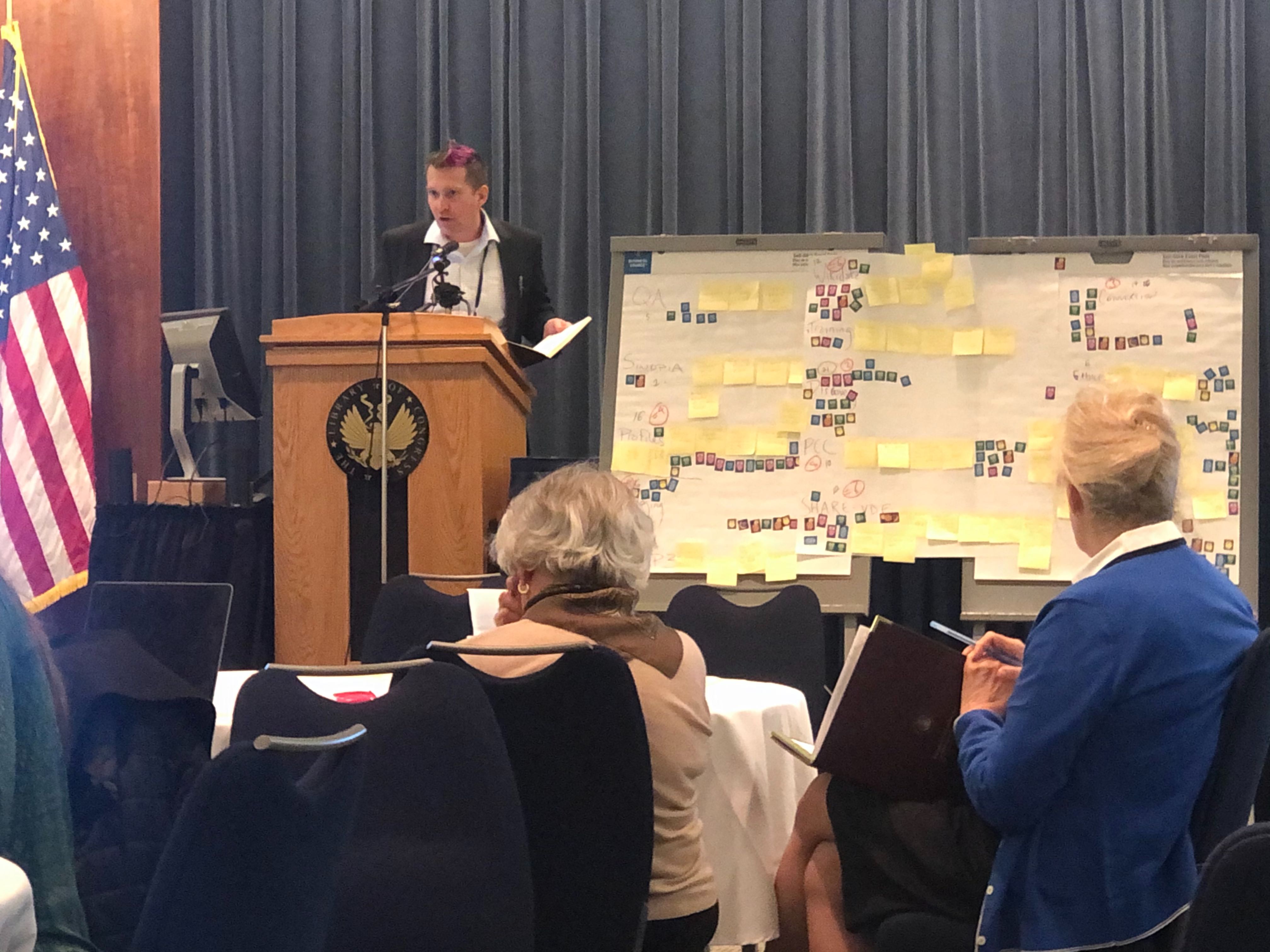My experience at Wikiconference & LD4P
I went to Wikiconference North America at MIT and a Linked Data meeting at the Library of Congress. I learned a lot!
No one explained to me that travel for work can be so exciting
Last week I went to Wikiconference North America hosted by MIT, and to LD4P2 Cohort & Partner meetings at the Library of Congress. It was my first time for both!
I learned and thought a lot about linked open data, where the source material for open data claims comes (or should come) from, and how these sources are (or should be) discovered.

Reliability / credibility at Wikiconference
The theme for Wikiconference North America this year was reliability / credibility. I particularly valued learning about these two issues in connection with the source material discovery process for Wikipedia authors. I also learned about Wikidata and Wikisource in ways that I think I'll use in my work at Cornell. Sessions I felt were of particular value:
- I attended a workshop on the basics of Wikidata, including how to use the UI to contribute statements (data) and some conventions for forming statements in a uniform way. (Which needs to be formalized for contributors who can't attend workshops.) I entered statements into Wikidata for the first time! It was a nice feeling to become a Wikidata contributor after spending so long as a Wikidata consumer. (At the afterparty, I created my first Wikidata Q number.)
- Amanda Rust of Northeastern University spoke about reliable source discovery, including the tendency to use older online open-access sources sometimes at the expense of accuracy. She was remarkably gentle about the motivations of editors in her example of editors' preference for outdated sources. (But I'm going to go ahead and say they were motivated by racism and sexism.)
- Merrilee Proffitt of OCLC spoke about identifying and addressing coverage gaps in Wikis. (Merrilee also wrote a blog post about the conference.)
- There was an intellectually engaging panel on the inherent difficulties of creating whitelists or blacklists of information sources.
I also gave a talk on linked open data in library discovery. The video of my talk is listed as Day 1 Session 3 - 32-141 on the video page. (Unfortunately, I ran out of time toward the end.)

Linked Data for Production
At the LD4P2 Cohort and Partner meetings what interested me the most were questions about the future directions of discovery and linked data development:
- Our discovery work so far has used linked data sources, but has made less use of any linked data cataloging of library materials. What new will become possible with a linked data catalog? How can we show its value now, while linked data cataloging is far from complete?
- What relationships can linked data encode that aren't expressed in MARC records now?
- Can we find more pools of linked data that are open, reasonably complete, and ethical?
- How should we be contributing back to our data sources?
That last question is of special importance to me; it is also the topic I presented on at Wikiconference. It's so exciting to me to see libraries asking themselves how they can contribute back to Wikis. Closing that loop is a part of building a more robust, flexible and accessible world of human knowledge. And that's why I'm here.